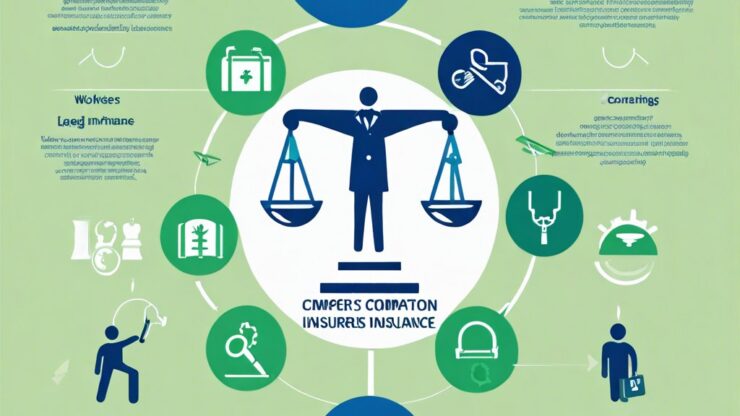Legal Obligations for Employers
In the realm of workplace safety and employee welfare, understanding the legal requirements of workers’ compensation insurance is paramount. This insurance not only protects your employees but also shields your business from potential lawsuits. As an employer, it is your responsibility to ensure that you are compliant with state laws regarding this essential coverage.
Each state has its own set of rules and regulations governing workers’ compensation. Failure to comply can lead to severe penalties, including fines and potential lawsuits. Therefore, it is critical to be aware of the specific requirements in your jurisdiction, which typically include:
- Mandatory coverage for most businesses
- Specific reporting protocols for workplace injuries
- Timely payment of premiums
- Maintaining accurate records of employee injuries
The Advantages of Workers’ Compensation Insurance
Investing in workers’ compensation insurance brings numerous benefits beyond mere legal compliance. This coverage not only provides financial support to employees who are injured on the job, but it also fosters a safer work environment and enhances employee morale. Here are some key advantages:
- Financial Protection: Covers medical expenses and lost wages for injured employees.
- Legal Coverage: Protects businesses from lawsuits stemming from workplace injuries.
- Improved Employee Retention: Employees are more likely to stay with companies that prioritize their safety and well-being.
By offering workers’ compensation insurance, you demonstrate a commitment to your employees’ health and security, which can lead to increased productivity and loyalty.
Steps to Ensure Compliance and Maximize Benefits
To navigate the complex landscape of workers’ compensation effectively, follow these steps to ensure compliance while maximizing the benefits for your workforce:
- Educate Your Employees: Provide training on workplace safety and the claims process.
- Evaluate Your Coverage: Regularly review your insurance policy to ensure it meets your business needs.
- Implement Safety Programs: Establish safety protocols to minimize workplace injuries.
- Maintain Open Communication: Encourage injured employees to report incidents promptly to facilitate quicker claims processing.
By taking these proactive measures, you not only comply with legal requirements but also create a positive work environment that prioritizes employee welfare.
Disclaimer
This article has been created or edited with the support of artificial intelligence and is for informational purposes only. The information provided should not be considered investment advice. Please seek the support of a professional advisor before making any investment decisions.






